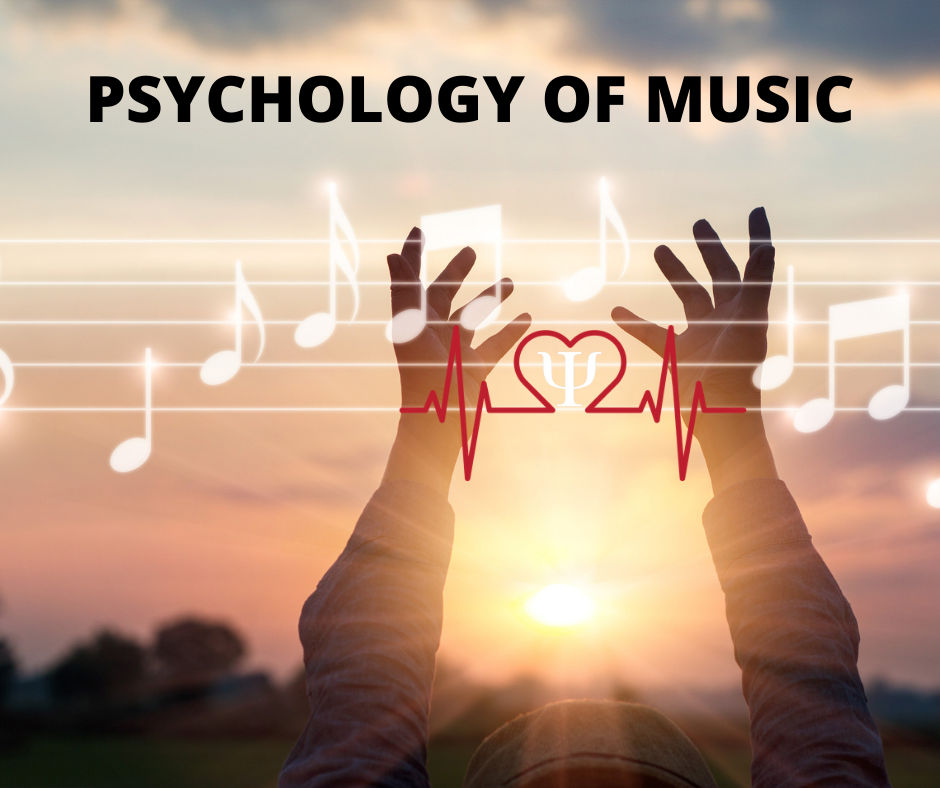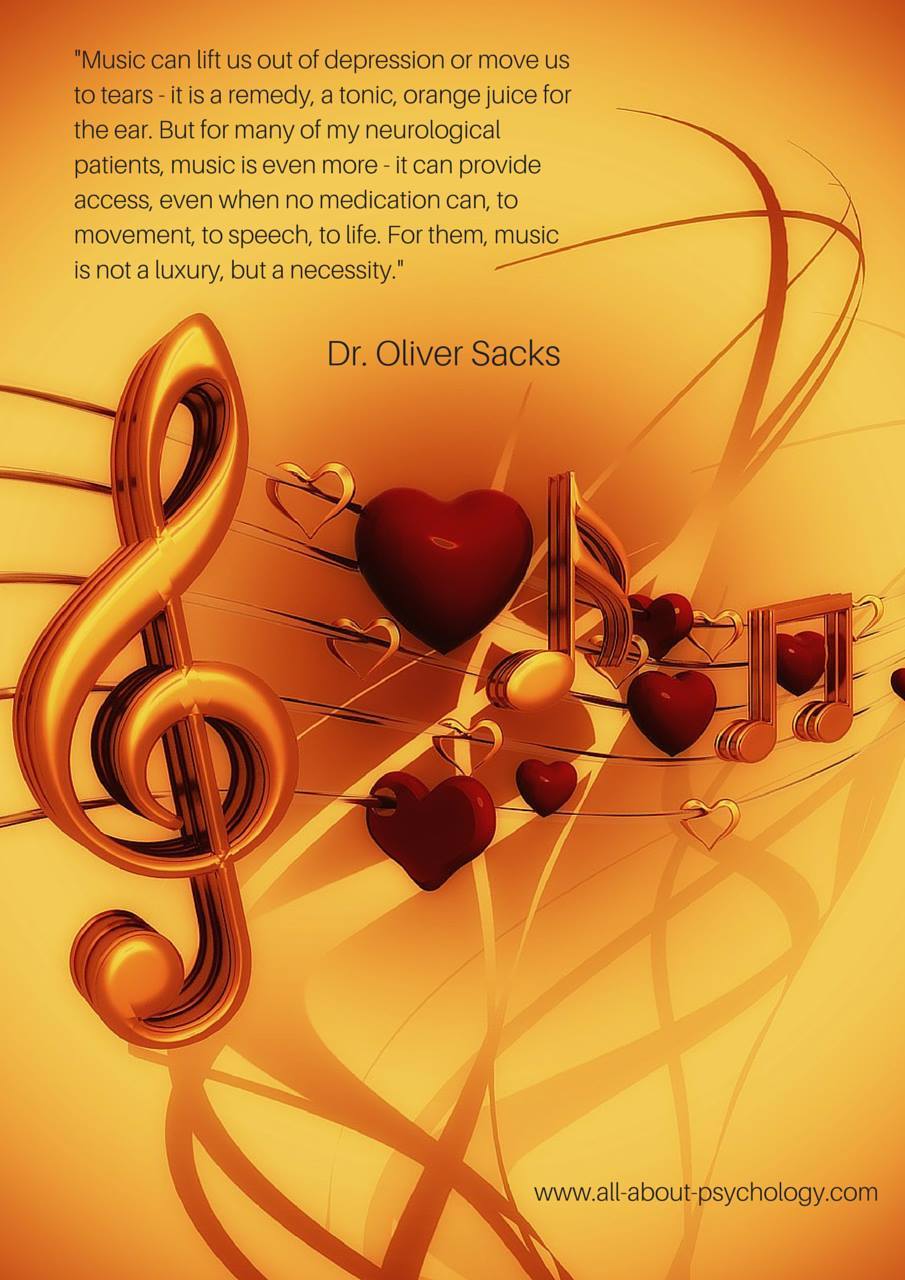Psychology Classics On Amazon

Psychology of Music
David Webb (Owner, writer & host of All-About-Psychology.Com)
What is Music Psychology?
There are lots of fascinating types of psychology but the psychology of music rocks! According to Richard Parncutt, Professor of Systematic Musicology at the University of Graz, music psychology investigates why humans spend so much time, effort and money on musical activities. This investigation combines the academic study of music (musicology) with the academic study of human individuals (psychology). Areas of psychology frequently drawn upon within the psychology of music include biopsychology, perception, cognition, creativity, motivation and emotion.
Professor Parncutt notes that the topic areas explored by music psychologists include, music rituals and gatherings, skills and processes involved in learning a musical instrument, the role of music in forming personal and group identities, everyday music listening and responding emotionally to music. And it is research into the last two topics (everyday music listening and responding emotionally to music) which have highlighted some incredibly interesting things that we can all relate to.
I Got Chills They're Multiplying!
I'm sure like most people you will have experienced that amazing buzz when listening to a particular song or piece of music? A tune so good or emotionally arousing, that it gives you goosebumps and makes your hair stand on end. Well, it turns out that these musical frissons like other happiness inducing experiences (sex, drugs, and food) are as a result of a dopamine rush.
Dopamine is a chemical neurotransmitter that helps regulate the reward and pleasure centers in the brain. A reinforcement and motivation stimulus, dopamine plays a very important role in our biological survival. Strikingly, therefore, given that music listening is not essential for human survival; dopamine release in this context serves to demonstrate the remarkable human ability to derive pleasure from abstract concepts such as music and art.
So What Does it For You?
What's your musical frisson number one? Which song or piece of music gives you goosebumps? Here are some of the replies I received when I asked this question on the All About Psychology facebook page.
Clare Island - The Saw Doctors.
Vivaldi - L' Olimpiade (Sinfonia Allegro) in facsimile.
You and your friend - Dire Straits.
Eulogy - Tool
Pavarotti - Nessun Dorma.
Simon And Garfunkel - The Sound of Silence.
Never let me go - Florence and The Machine.
The tune that does it for me is Bizarre Love Triangle by New Order. The 1980's was my decade and this anthem transports me straight back there every time, in fact I've got Frissons right now just thinking about it.
The Psychology Of Tunes That Stick In Our Heads
"You're suffering from a condition known as "Earworm..." when your brain becomes stuck on a catchy tune."
(SpongeBob Square Pants: Season 8, episode 9, 2010)
Another very common musical experience is when a tune suddenly pops into your head and keeps on doing so over and over again. This phenomenon has been variously labeled - tune in the brain syndrome, sticky music, cognitive itch, involuntary musical imagery and my personal favorite "earworms."
To find out just how common earworms are, Dr. Lassi A. Liikkanen from Aalto University in Finland conducted the first comprehensive study on the subject. Over 12,000 people completed an online survey, with 91% of respondents reporting experiencing earworms at least once a week.
In a quest to learn more about the music in people’s heads, Dr Victoria Williamson and colleagues from Goldsmiths, University of London, conducted collaborative research with BBC 6Music and the British Academy. One illuminating area of enquiry has been to explore the circumstances preceding an earworm episode. Among the triggers which can apparently cause a tune to pop into your head and become an earworm are:
- Recent Exposure: A tune you recently heard becomes an earworm.
- Repeated Exposure: A tune you heard on multiple occasions becomes an earworm.
- Person Association: The earworm tune is linked to a person you have seen, talked or thought about.
- Situation Association: The earworm tune is triggered by the situation or environment you find yourself in e.g., a wedding reminds you of your favorite love song.
- Word Association: The earworm tune title or lyrics are linked to a word or words that you have seen or heard.
- Mood State: The earworm tune is linked to your mood.
- Stress State: The earworm tune is linked to your experience of an anxious or traumatic event.
- Dream Recall: The earworm tune is connected to events you dreamt about.
Among the other interesting patterns found among those reporting earworms were that women get earworms more than men and that the average length of an earworm is 27 minutes but for some people they can last for hours, days and even weeks!
Why Studying Earworms is Important
"By learning about earworms we can understand more about: 1) how our involuntary memory systems work in both positive (creativity) and negative (rumination and PTSD) ways; and 2) how we can learn to use memory more effectively, for example using music to help children learn more effortlessly or aid those who are suffering from memory problems."
(Dr Victoria Williamson)
The Power of Music
I can't think of a better way of demonstrating the power of music than by drawing your attention to - Alive Inside: A Story of Music and Memory by Michael Rossato-Bennett. This profoundly moving documentary chronicles social worker Dan Cohen's discovery that personalized music can awaken memories in people with Alzheimer’s and dementia.
Meet Henry
During the making of the documentary a clip of Henry a 94 year old man with dementia was posted on YouTube. The clip went viral and within a week 7 million people had seen it.
GO HERE to learn more about the Alive Inside documentary and The Alive Inside Foundation, 'a non-profit dedicated to inspiring an empathy revolution through education, intergenerational practices, music, and film.'
Music Psychology Blog
CLICK HERE to explore Dr Victoria Williamson's Music Psychology Blog, an outstanding resource for anybody interested in learning more about music psychology.
Note To Psychology Students
The use of therapeutic music in a formalized setting would be a great topic for a research project or final year thesis/dissertation. Not least because Nina S. Parikh, PhD, from the Brookdale Center for Healthy Aging of Hunter College, CUNY has put together an extensive reference list of the latest research on the subject, which you can access HERE.
About The Author
David Webb is the owner, writer and host of four websites built around his teaching and research interests; including All-About-Psychology.Com which receives over two million visits a year.
A passionate promoter of psychology through social media, over 890,000 people follow his psychology Facebook page and he is featured on the British Psychological Society list of the 100 most followed psychologists and neuroscientists on Twitter.
A bestselling author, his published work includes: The Psychology Student Guide - The Incredibly Interesting Psychology Book and, On This Day in Psychology.
This Music Lover T-Shirt is available from Amazon (prime eligible) in a range of colors for women and men. Sales help support this website, which has been providing free and comprehensive information and resources for psychology students and educators since 2008.
Recent Articles
-
Sponsor a Psychology Website with Over a Million Yearly Visitors
Jun 30, 25 11:30 AM
Showcase your brand to a huge, engaged audience. Discover how to sponsor a psychology website trusted by over a million visitors a year. -
Unparalleled Psychology Advertising Opportunities
Jun 29, 25 04:23 AM
Promote your book, podcast, course, or brand on one of the web's leading psychology platforms. Discover advertising and sponsorship opportunities today. -
Psychology Book Marketing
Jun 29, 25 04:19 AM
Psychology book marketing. Ignite your book's visibility by leveraging the massive reach of the All About Psychology website and social media channels.
Please help support this website by visiting the All About Psychology Amazon Store to check out an awesome collection of psychology books, gifts and T-shirts.
Go Back To The Types of Psychology Page
Go From Psychology of Music Back To The Home Page







New! Comments
Have your say about what you just read! Leave me a comment in the box below.